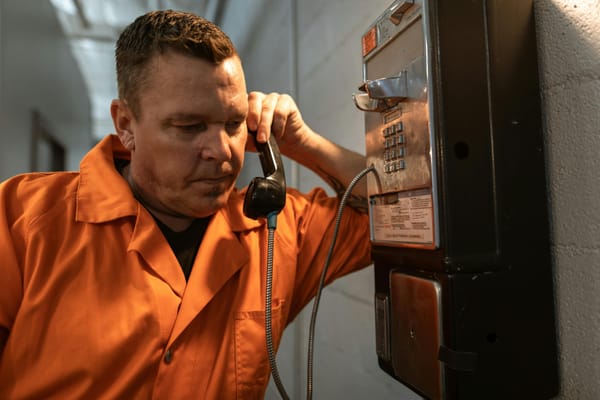ISPs Pressing FCC to Relax Section 214 Requirements
The FCC's 2015 net neutrality rules did not erect regulatory entry and exit barriers.

WASHINGTON, March 4, 2024 – Today, broadband Internet Service Providers largely enjoy broad freedom to enter and exit markets. But that could change under net neutrality rules that the Federal Communications Commission is expected to adopt later this year.
In recent days, major ISPs on their own or through trade groups like US Telecom have urged the FCC to retain current policy, noting that the agency’s 2015 net neutrality rules did not erect regulatory entry and exit barriers.
“Broadband providers have always been free to roll out new and innovative offerings – and to remove older, less popular offerings – without first obtaining [FCC] approval,” said US Telecom in a Feb. 27 filing with the FCC. “Requiring ISPs to seek the [FCC’s] permission every time they want to discontinue or change an existing service offering would undermine investment incentives.”
US Telecom represents AT&T, Verizon, and many small and regional broadband ISPs.
Separately, AT&T officials met with FCC officials on February 26 to voice their disapproval of the way that changes to Section 214 would impact the company.
Regulating entry and exit would undermine free market capitalism and would imperil future broadband investment, the company said, because ISPs would have to weigh the risk of investing in communities or services that may potentially prove unprofitable.
Section 214 at issue
At issue is a provision in communications law known as Section 214, which requires common carriers to have an FCC certificate to construct new lines and extend others. FCC permission is also needed for the discontinuance of service. Violations come with per-day fines.
Under the proposed net neutrality rules, the FCC intends to classify broadband ISPs as common carriers subject to the requirements found in Section 214. Today, ISPs are classified as Title I information service providers and are not subject to Section 214 in Title II of the Communications Act.
FCC Chairwoman Jessica Rosenworcel’s Notice of Proposed Rulemaking on net neutrality doesn’t call for Section 214 forbearance because she wants to utilize Section 214’s broad domestic and international scope to block foreign bad actors from entering the U.S. broadband market or require those operating in the U.S. to stop, if necessary.
ISPs hoping the FCC changes course do not believe that a national security rationale justifies applying Section 214 domestically when the Committee on Foreign Investment in the United States reviews foreign investments in the U.S. communications sector, including investments in broadband networks and services.
The FCC also refers some international Section 214 requests to the Committee for the Assessment of Foreign Participation in the United States Telecommunications Services Sector (also known as "Team Telecom”) run by the Justice Department’s National Security division and includes the Secretaries of State, Treasury and Commerce.
The cable industry, led by NCTA - The Internet & Television Association, has said the FCC's reliance on Section 214 authority represents “yet another source of massive regulatory power” to compel ISPs “to build out broadband networks to certain areas or to undergo a lengthy approval process merely to discontinue a particular speed tier.” The result would, NCTA added, impose “significant burdens” and force “providers to support outdated services long after the market demand for such services has evaporated.”
NCTA represents major cable ISPs, including Comcast Corp. and Charter Communications.
AT&T in echoing many of NCTA’s points noted that if the FCC refused to grant a discontinuance certificate, the company would be forced to keep spending billions supporting outdated copper-based Digital Subscriber Line technology rather than fiber.
“The [FCC’s] current Section 214 rules were developed for legacy telephone service, not Internet service—and certainly not for outdated DSL-based Internet access services,” AT&T said.
Section 214 would impose regulatory burdens and endanger the growth of fixed wireless service. The company claims that the dynamic and unstable nature of fixed wireless services necessitate the ability of providers to discontinue the product at any given time.
At least two public interest groups – Public Knowledge and Free Press – want the FCC to retain Section 214 authority. Public Knowledge said the agency could make it less burdensome for domestic ISPs by adhering to precedent “by granting blanket authority to operate under Section 214 without the need to apply for a specific license.”
Free Press has urged the FCC to use Section 214 to protect consumers by preventing ISPs from making a hasty retreat from the market.
“While it would seem unfathomable to many that an ISP could just drop all of its customers without warning, this does happen. For example, just this [December, 2023] a cable and Internet service provider serving parts of western Mississippi and eastern Louisiana ceased operations without notifying customers,” Free Press said in Dec. 14, 2023 FCC filing.
Free Press was referring to Bailey Cable TV, which abruptly closed down on Nov. 30, 2023 and failed to provide appropriate notice to customers and local governments. Customers who lost pay-TV service called various local officials seeking an explanation.
Article by Ted Hearn, the Editor of Policyband, a new website dedicated to comprehensive coverage of the broadband communications market. A version of this piece was published on Policyband on March 3, 2024, and is reprinted with permission.
Additional reporting provided by Broadband Breakfast Reporter Corey Walker.











